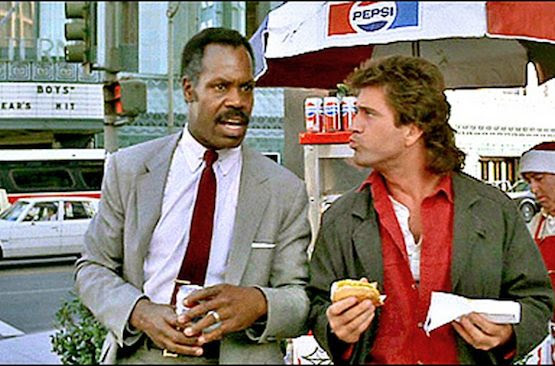Computer Guy

Sunset at DoubleM Systems (DBLM.com), Del Mar, California
Saturday, February 29, 2020
Top 20 Reasons for Startup Failure
CBinsights analyzed 339 startups that failed. Shown above are the top 20 reasons why. If you want to get into the depressing, but highly educational, details, click here.
Tuesday, February 25, 2020
Corporate Culture: best two documents, Ever

What Is Corporate Culture?
Corporate culture refers to the beliefs and behaviors that determine how a company's employees and management interact and handle outside business transactions. Often, corporate culture is implied, not expressly defined, and develops organically over time from the cumulative traits of the people the company hires. A company's culture will be reflected in its dress code, business hours, office setup, employee benefits, turnover, hiring decisions, treatment of clients, client satisfaction, and every other aspect of operations.
Read more from Investopedia.

Probably the next best document on this subject is the Handbook for New Employees at VALVe software. These guys set the bar at a high level.
Thursday, February 20, 2020
Let's meet at Starbucks... NOT!
I just read the latest email from Pitch Anything guru Oren Klaff and I've got to say I was shouting at my screen in violent agreement with him, so much so that I have to cut and paste a part of his email right here:
|
|
|
|
Thursday, February 13, 2020
San Diego #8 Best City for Starting a Business
The 50 Best U.S. Cities for Starting a Business in 2020
San Diego
Come for brand names. Stay for the startup scene--and the beach.
Triple Sevens!!!
No. 7 RATE OF ENTREPRENEURSHIP
No. 7 HIGH-GROWTH COMPANY DENSITY
No. 7 EARLY-STAGE FUNDING DEALS
In 2018, much of San Diego's near-record $2.5 billion in venture capital funding went to life sciences and biotech businesses. These industries are still the main attraction in this beach town, but San Diego’s nascent tech scene is picking up, thanks largely to two new area venture firms--Blueprint Equity and Torrent Ventures--and local tech giant Qualcomm’s corporate venture fund, which is putting $100 million into A.I. companies.
While the area’s universities generate a lot of smart, young talent, midlevel managers skilled at helping fledgling ventures get to the next level are in short supply. That could change with the arrival of outposts from Apple, Amazon, and Walmart Labs. “For a long time, Qualcomm has been the big brand name here, but when you get the Apples and Amazons [opening offices] in town, people are going to chase the brand names,” says Neal Bloom, a local entrepreneur who runs Fresh Brewed Tech, a site about San Diego’s tech community.
The hope is that while new talent may come to the city for the bigger brand names, they’ll eventually stay for the startup scene--and the beach. --Lindsay Blakely
Source: https://www.inc.com/surge-cities
Tuesday, February 11, 2020
Client feedback: Optimizing Investor Meetings
This email just in from a client whose meetings with a potential investor were taking too much time to get to the point, and the client, a startup, wanted to know how to deal with the issue.
My advice was that getting an angel to invest takes Time. They need to move at their own pace in order to feel comfortable with the startup. It's a matter of building Trust, and that takes Time. So, instead of getting the investor to change their behavior, it is more effective to change the startup's behavior to be more productive in the time available. Here's their follow up from our discussion:
Michael,
Thank you so much for jumping on a call with me yesterday on such short notice. Your advice about not trying to directly tell this investor he needs to improve his communication skills helped me to save face, and ultimately will lead to me and this investor having a more productive relationship.
During our conversation, you provided me with a framework for what needs to be done before and after each meeting. I believe I understand what you've told me, but please make sure this framework is what you intended:
Before the meeting:
- Provide a detailed agenda, along with how long each agenda item should take
- Provide a hard stop time
After the meeting:
- In the follow-up email, make sure to provide my notes of what was discussed during the meeting. This way, if something was misunderstood, the other people in the meeting can correct it
The goal of these three points is to close the communication gap, as well as to show whomever I meet with that their time (and mine) is valuable. Additionally, in regards to the "before the meeting" section of the framework, it allows me to take control of the meeting before it even begins, and ensures that less time will be wasted.
After we discussed this framework, you also conveyed the importance of keeping my meeting times, and making sure I do not falter in holding up my commitments. You explained to me how this will improve my reputation, and show that I value people's time. I agree with everything you said.
I'm ashamed that I have not always held up my commitments with people whom I had meetings scheduled in the past, but, as you put it, I need to be a man of my word. Making sure I keep my commitments will now be of primary importance to me. I am very grateful that you illuminated how important this is.
You ended our call with asking how I would put these points into practice. I hope that with this email, I have already began. If this or any communication I have with you does not adhere to the framework you provided me, please tell me quickly and emphatically. I don't doubt that these techniques will quickly become a vital part of my reputation if I apply them effectively.
Subscribe to:
Posts (Atom)



